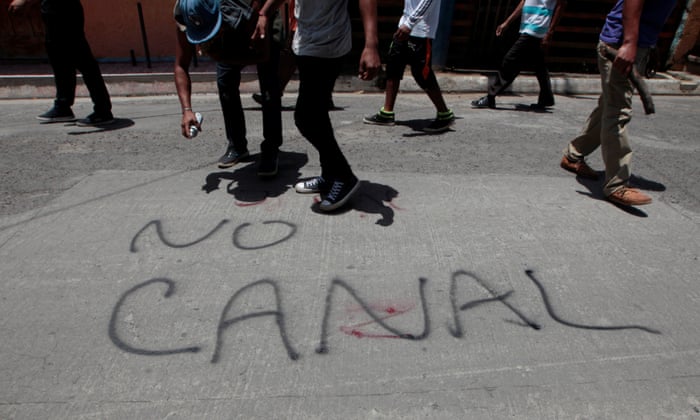Tuesday 8 August 2017 13.45 EDT
Every poll in Nicaragua has shown that the inter-oceanic canal has majority popular support, writes John Perry, and Helen Yuill says the canal raises a wider question faced by all developing countries

Your article (Nicaragua canal critics ‘face wave of persecution’, 4 August) begins by calling the protests against Nicaragua’s inter-oceanic canal “a mix of anger, fear and defiance not witnessed since the civil war between the Sandinista government and US-backed Contra rebels”. That war cost 30,000 lives, but no one has died in the canal protests.
The protesters have organised more than 90 marches, involving thousands of people. Yes, some of the marches have been stopped, arrests have been made and unknown people have attacked some of those taking part. Amnesty International calls this “a campaign of harassment and persecution”. Would they apply the same standards to the police action to stop protests against fracking in the UK? Polls in Britain show that fracking protesters have public opinion on their side. In Nicaragua, every poll has shown that the inter-oceanic canal has majority popular support, and the protesters are in a minority, even in many of the areas through which the canal will pass.
Of course a mega-project such as the canal should be scrutinised for its potential social, economic and environmental effects. But please don’t make facile comparisons between the protests and a recent war that had such a devastating affect on a small country.
John Perry
Masaya, Nicaragua





